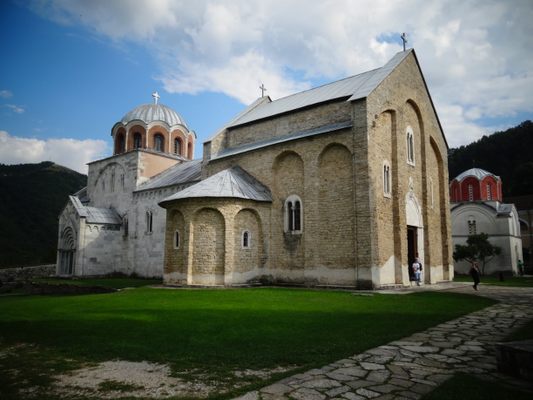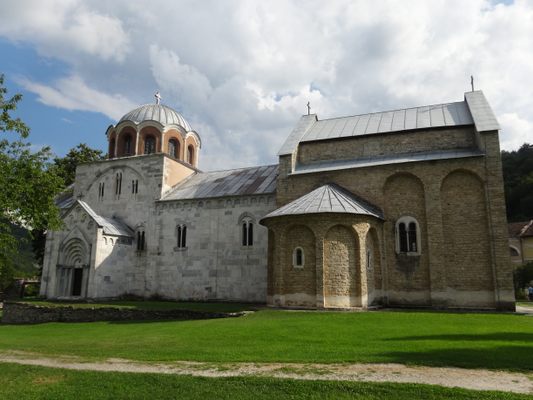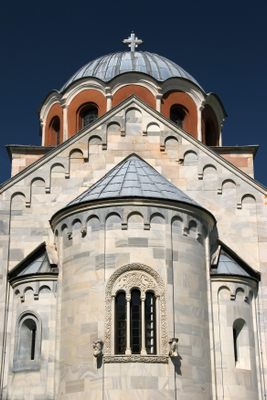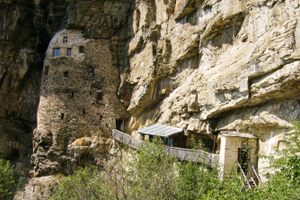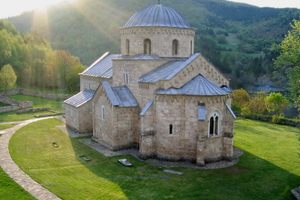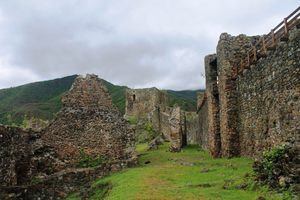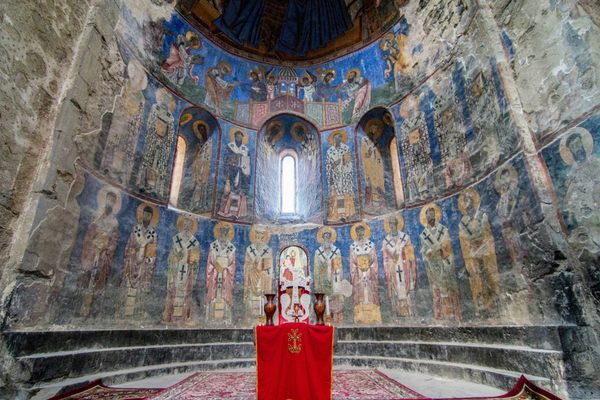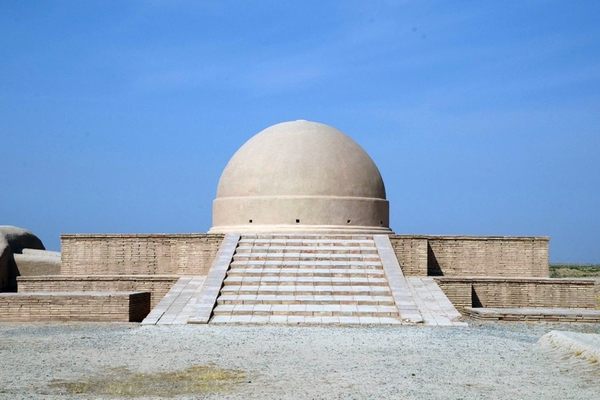About
The Studenica Monastery is considered the most beautiful example of Serbian medieval ecclesiastical architecture. For over eight centuries, the monastery survived numerous conquests and still houses some of the most amazing examples of medieval frescoes and treasures.
The monastery was established during the late 12th-century by Stefan Nemanja, the founder of the medieval Serbian state and the famous Nemanjić dynasty. It's the largest and richest Serbian Orthodox monastery and earned a spot on the UNESCO World Heritage list in 1986. The monastery is located in the "Valley of the Kings," along with the Žiča, Gradac, Sopoćani, and Djurdjevi Stupovi monasteries. All are considered major religious and cultural sites from the Middle Ages.
Located within the complex is the Church of the Virgin, the Church of St. Nicholas, and the King's Church, as well as other facilities such as the monastery's lodgings, the bell tower, and the museum. The Church of the Virgin is a domed basilica, whose facades were constructed with white marble slabs. Inside, the church is revetted with tuff blocks. Externally, it reconciles two architectural styles, the Romanesque and the Byzantine, a mix that later produced a particular Raška style common for most monasteries in medieval Serbia.
The King's Church was named after Serbian king Milutin. Constructed in 1314, the church is dedicated to the saints Joachim and Anna. Fragments of frescoes can be found in the bell tower and the external part of the nartex, the most prominent being the Nemanjić dynasty genealogy fresco.
Many visitors come to see the famous "Crucifixion of Christ" fresco, also known as the "Studenica Crucifixion," painted around 1208 with the Byzantine-blue color. At the time, the pigment was considered to be more valuable than gold. The Studenica Cross is carved on the monastery walls and represents the blend of the two symbols—the anchor, representing salvation and security, and the flowers, representing growth and progress. The cross later became the emblem of the construction and culture of medieval Serbia.
Other curiosities around the monastery includes the rosettes denoting the Divine Eye, medallions, and fantastic animal carvings that grace the church's walls. One includes the Studenica Eagle that represents Nemanja, who freed the Serbian nation from turmoil and rose the Kingdom of Christ.
The monastery was devastated throughout history due to natural disasters such as fires and earthquakes. Its treasures were often targeted by robbers, especially during the Ottoman conquests. Some of the reliquaries are still preserved and include ancient manuscripts, books, charters, and most notably, the Four Gospels, decorated with colorful headers and initials. There is also a 14th-century shroud of Anthony of Heraclius. Along the southern portal of the Church of the Virgin stands the oldest clock in Serbia; a sundial whose shadow falls on letters instead of numbers, as the Old Church Slavonic language didn't have symbols that represented numbers.
The monastery is located in a peaceful and serene nature preserve, along the slopes of Mt. Golija. Near the monastery flows the Studenica river and other tourist attractions are nearby. These include the Tree of Love, two beech trees whose branches merge into one. Many couples visit and pass under the joint branch, believing it strengthens their love. Another famous site is the unusual Middle Earth-like cave-complex known as the Hermitage of Saint Sava, which offers beautiful views of the valleys and forests.
Related Tags
Know Before You Go
Studenica Monastery is a religious site and visitors are expected to follow Orthodox customs. Photography is only allowed in certain areas.
Group visits can be pre-arranged by contacting the monastery on: visitstudenica@gmail.com.
Balkans Road Trip: Serbia, Croatia & Bosnia and Herzegovina
Traverse the beauty and history of the Balkans through locals' stories.
Book NowCommunity Contributors
Added By
Published
August 26, 2020
